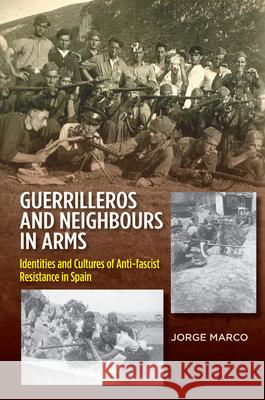Guerrilleros and Neighbours in Arms: Identities and Cultures of Anti-Fascist Resistance in Spain » książka
Guerrilleros and Neighbours in Arms: Identities and Cultures of Anti-Fascist Resistance in Spain
ISBN-13: 9781845197520 / Angielski / Twarda / 2016 / 294 str.
Guerrilleros and Neighbours in Arms: Identities and Cultures of Anti-Fascist Resistance in Spain
ISBN-13: 9781845197520 / Angielski / Twarda / 2016 / 294 str.
(netto: 522,00 VAT: 5%)
Najniższa cena z 30 dni: 530,25 zł
ok. 22 dni roboczych.
Darmowa dostawa!
The Spanish Civil War was the first battle against fascism in Europe. Five months after the victory of dictator Francisco Franco in Spain, the conflict moved to Europe with the outbreak of the Second World War. Anti-fascist resistance groups formed by ordinary citizens emerged in virtually all European countries. Although the Spanish resistance constituted the first and last anti-fascist resistance movement in Europe, the Spanish case has been consistently overlooked by international studies. This book inserts the Spanish anti-Franco resistance into the European context, proposing a new narrative of anti-fascist resistance in Europe. At the same time, the book offers a new interpretation of guerrilla phenomena with a strongly peasant character, as was the case of the resistance in Spain. Jorge Marco underlines the importance of primary groups (kinship, neighbourhood, friendship) and secondary groups (camaraderie and political loyalties) in the mobilisation and organisation of armed groups. For this study, twelve variables are established to distinguish between 'neighbours in arms' and 'modern guerrilla'. The studied combinations of groups and types demonstrates the plurality of the identities and cultures of the anti-fascist resistance in Spain. This book is published in association with the Canada Blanch Centre for Contemporary Spanish Studies. Subject: Spanish Civil War, History, Anti-Fascism]











